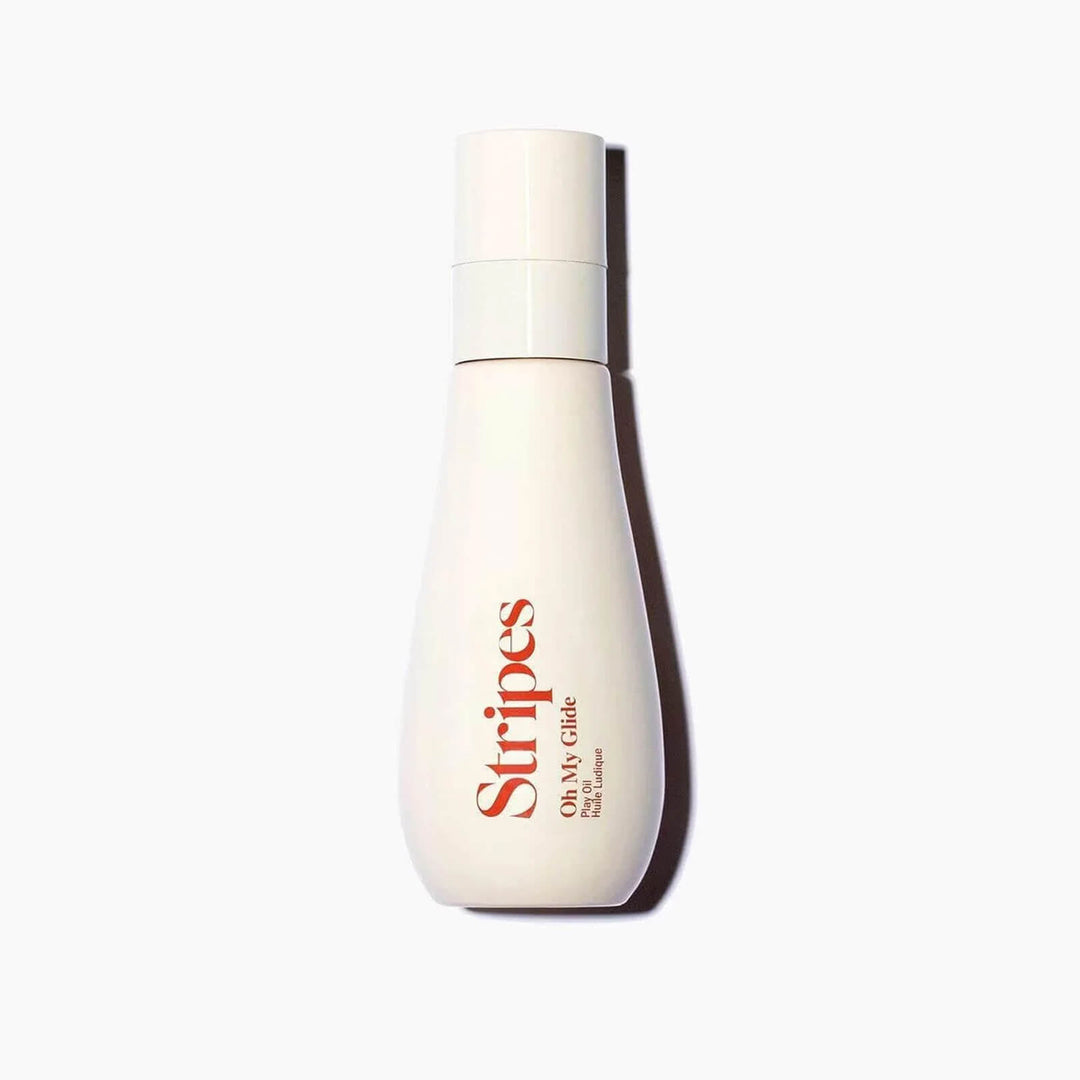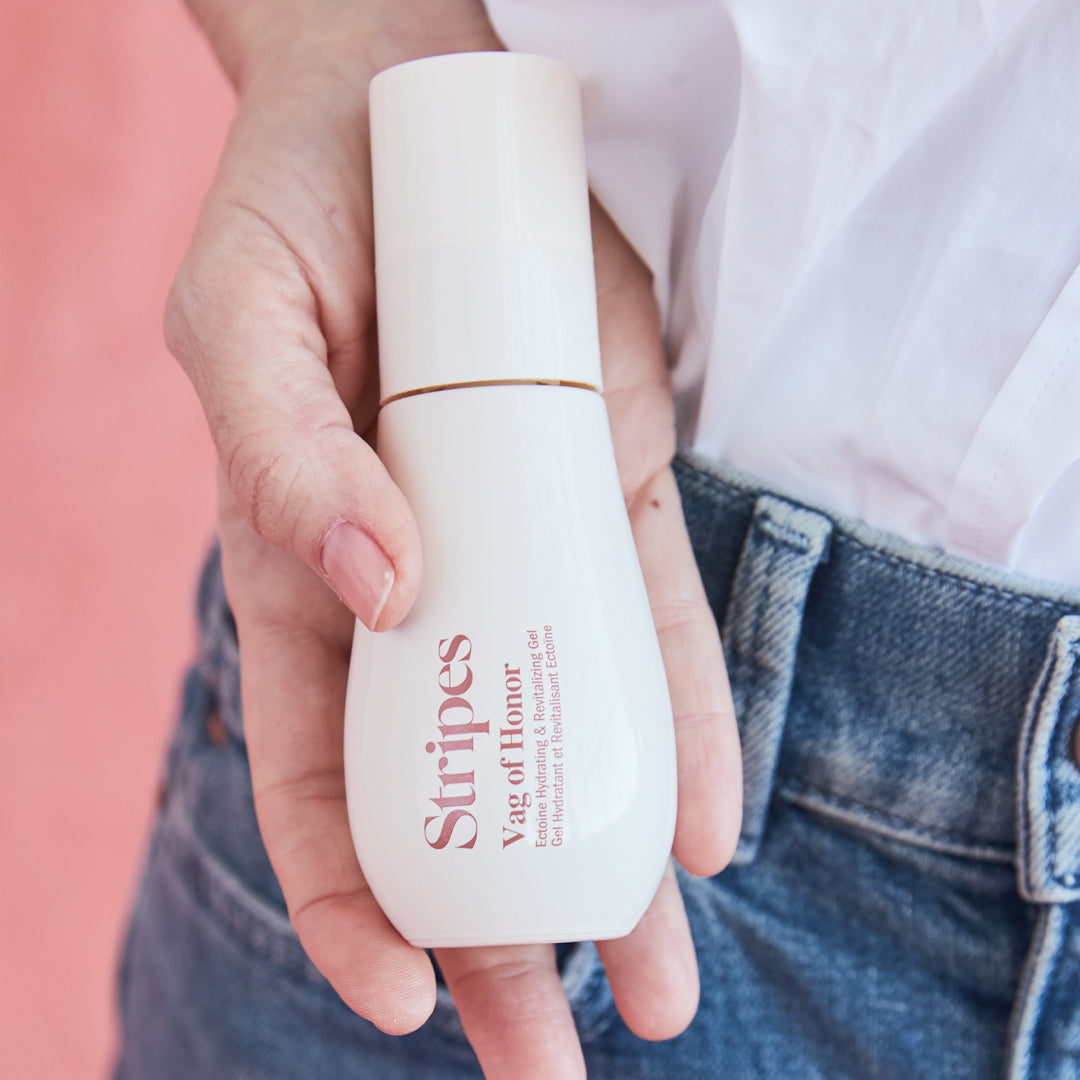The Link Between Hot Flashes and Nausea Explained
If you’ve ever been hit by a sudden wave of heat and nausea — like a mini internal volcano meets an amusement park ride — you’re not imagining things. While hot flashes get all the menopausal spotlight (sweaty sheets! public fanning! wardrobe changes!) nausea is the quieter, less talked-about sidekick. “Hot flashes are really just the tip of the iceberg,” says Dr. Sharone Malone, OBGYN, in Stripes Founder Naomi Watts’s book, “Dare I Say It: Everything I Wish I Knew About Menopause.”
Yep, that queasy, unsettled stomach you get during a hot flash isn’t random. It’s yet another gift from the hormonal rollercoaster of perimenopause and menopause. So let’s unpack what’s going on, why these two symptoms like to tag-team, and how to keep both in check without living on ginger chews and cold compresses.
First, what exactly is a hot flash?
Hot flashes are sudden feelings of intense heat, often accompanied by sweating, rapid heartbeat, skin flushing, and sometimes — surprise! — a wave of nausea. They’re one of the most common menopause symptoms, experienced by roughly 75% of women, especially during perimenopause (the transitional years leading up to menopause).
Hot flashes originate in the hypothalamus, the brain's thermostat. When estrogen levels drop, the hypothalamus becomes hypersensitive and overreacts to even minor changes in body temperature, triggering a full-on cooling response: sweating, blood vessel dilation, and, for some, a churning stomach.
So why the nausea?
Good question. Nausea isn’t always listed among the classic hot flash symptoms, but many women experience it—especially during intense or prolonged episodes.
Here’s why:
1. Vasodilation can mess with your gut
During a hot flash, your blood vessels dilate rapidly to release heat. This sudden shift in circulation can affect your gastrointestinal system, slowing down digestion or altering gut motility. The result? Nausea.
2. Hormonal chaos plays a role
Estrogen and progesterone don't just regulate your reproductive system — they influence digestion, mood, and even your body's response to motion and stress. When these hormones fluctuate wildly (hello, perimenopause), they can make your stomach more sensitive to stress, heat, and even mild movement, all of which can contribute to nausea.
3. Hot flashes often trigger anxiety, which can trigger nausea
If you’ve ever felt a hot flash rising in a meeting, on the subway, or while trying to sleep, you know it can spike your anxiety in seconds. And when anxiety kicks in, so does the gut-brain connection. Cortisol and adrenaline can mess with digestion and cause — you guessed it — nausea.
4. You might be more sensitive than you think
Some people are simply more prone to vestibular symptoms (dizziness, queasiness, motion sensitivity), especially during hormonal shifts. If you were prone to morning sickness, PMS nausea, or migraines in earlier life, you may be more likely to experience nausea with hot flashes too.
What the science says about hot flashes and nausea
While nausea during hot flashes isn’t always front and center in medical literature, it's not unheard of. In fact, research shows that menopause symptoms are highly individualized, and gastrointestinal complaints are common. One study published in the Journal of Mid-Life Health found that women reporting more severe vasomotor symptoms (aka hot flashes and night sweats) also experienced more GI discomfort, including nausea and bloating.
So if you’re feeling queasy every time the heat rises, you’re not alone, and you’re not being dramatic.
Managing the heat + quease combo: your survival guide
Ready to turn the volume down on the hot flash–nausea duet? Here are some strategies to help soothe both:
1. Cool down fast
Have a fan, cooling towel, or ice water handy when you feel a flash coming on. Keeping your core temperature down can minimize both the heat and its queasy side effects. A cooling face mist or a chilly eye mask at night? Highly recommended.
2. Watch what (and when) you eat
Spicy foods, caffeine, alcohol, and sugar can all trigger hot flashes and upset your stomach. Instead, go for hormone-friendly meals: whole grains, lean proteins, and fiber-rich veggies. Also, avoid eating large meals right before bed, when night sweats and nausea tend to peak.
3. Try ginger or peppermint
Both have been used for centuries to treat nausea. Sip on ginger tea, pop a peppermint lozenge, or keep ginger chews in your bag for a natural, on-the-go fix.
4. Mind your stress
Meditation, yoga, breathing exercises — whatever calms your nervous system can help regulate both hot flashes and gut symptoms. Chronic stress only adds fuel to the hormonal fire.
5. Stay hydrated
Even mild dehydration can intensify both hot flashes and nausea. Keep a bottle of cold water with you and sip regularly — bonus points if it’s infused with cucumber or mint.
6. Consider supplements (carefully)
Some women find relief with black cohosh, evening primrose oil, or magnesium. But not all supplements are created equal, and they may interact with other medications so check with your provider before adding anything new.
7. Talk to a menopause-literate provider
If hot flashes and nausea are interfering with your quality of life, it’s time to chat with someone who gets it. Hormone therapy, SSRIs, and even certain antihypertensives have been shown to help reduce vasomotor symptoms.
When to worry about hot flashes and nausea
While hot flash-induced nausea is common, there are times it warrants a closer look. If your nausea is constant, severe, or accompanied by vomiting, unexplained weight loss, or intense abdominal pain, talk to your doctor. You’ll want to rule out GI conditions or other health issues unrelated to menopause.
TL;DR: You’re not imagining it
Hot flashes and nausea may seem like a weird, unwelcome combo, but they make more sense than you think. From blood flow shifts to hormone drops to good old-fashioned stress, it’s a perfect storm.
But knowledge is power, and there are ways to keep your cool, even when your body wants to turn up the heat. With a few small adjustments and the right support, you can ride the waves of menopause with more ease and less quease.








